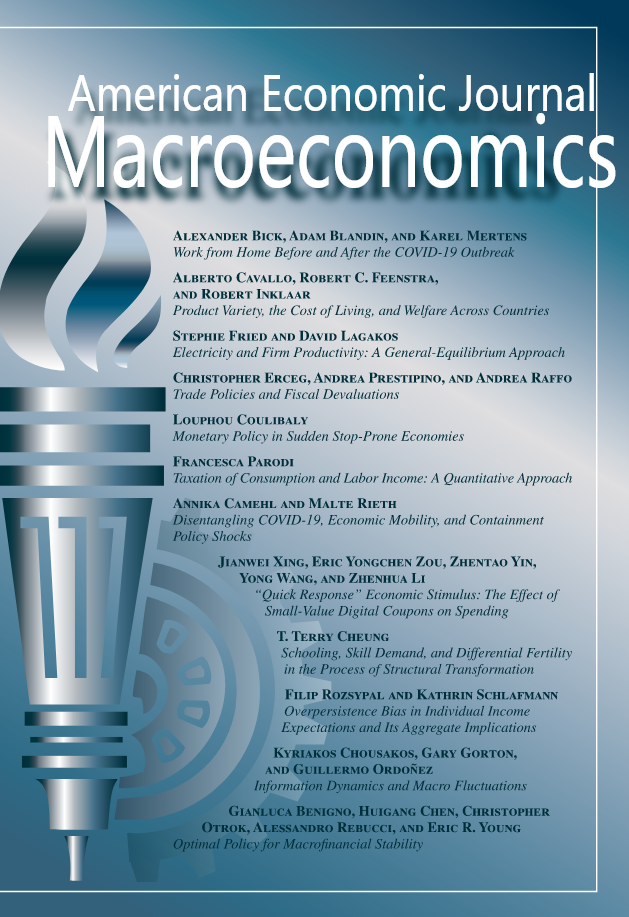“快速反应”经济刺激:小额数字优惠券对消费的影响
IF 5.7
1区 经济学
Q1 ECONOMICS
引用次数: 0
摘要
我们研究了中国一个大城市实施的一项新的消费刺激计划,该计划利用移动支付平台分发大量小额数字优惠券。我们利用发放过程的“匆忙”设计,其中超过100万计划参与者通过数字门户以先到先得的方式竞争优惠券,我们估计,每获得1美元的政府补贴,赢得优惠券的人每周的自付支出就会增加3美元。赢得优惠券的消费者通过提前四个月购买来实现跨期替代。客流分析表明,优惠券扭曲了消费者对价格更高的选择的消费。(jel d15, e21, e42, h71, o18, p25, p36)本文章由计算机程序翻译,如有差异,请以英文原文为准。
“Quick Response” Economic Stimulus: The Effect of Small-Value Digital Coupons on Spending
We study a new consumption stimulus program implemented by a large Chinese city that leverages mobile payment platforms to dispense massive amounts of small-value digital coupons. Exploiting a “rush” design of the dispensing process in which over 1 million program participants compete for coupons on a first-come, first-served basis through a digital portal, we estimate that winning coupons increases weekly out-of-pocket spending by US$3 for every US$1 in government subsidy. Coupon-winning consumers practice inter-temporal substitution by moving up purchases that would have been made four months in the future. Customer flow analysis suggests that coupons distort consumption toward pricier options. (JEL D15, E21, E42, H71, O18, P25, P36)
求助全文
通过发布文献求助,成功后即可免费获取论文全文。
去求助
来源期刊

American Economic Journal-Macroeconomics
ECONOMICS-
CiteScore
8.20
自引率
1.70%
发文量
58
期刊介绍:
American Economic Journal: Macroeconomics focuses on studies of aggregate fluctuations and growth, and the role of policy in that context. Such studies often borrow from and interact with research in other fields, such as monetary theory, industrial organization, finance, labor economics, political economy, public finance, international economics, and development economics. To the extent that they make a contribution to macroeconomics, papers in these fields are also welcome.
 求助内容:
求助内容: 应助结果提醒方式:
应助结果提醒方式:


